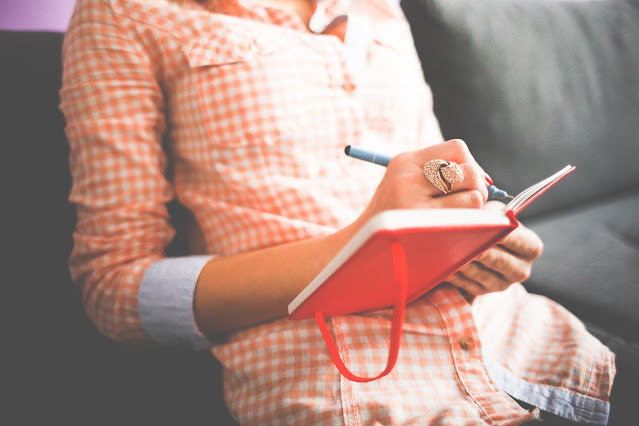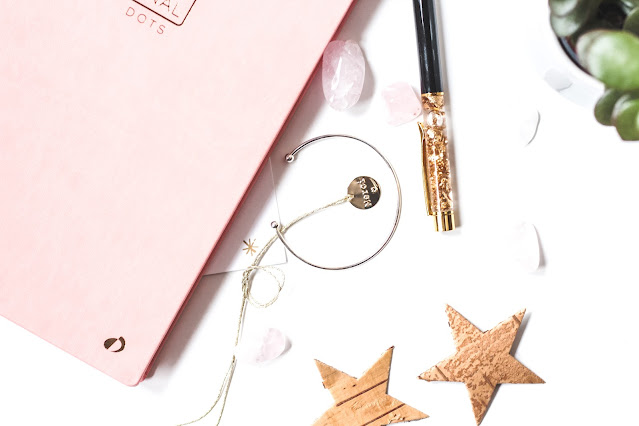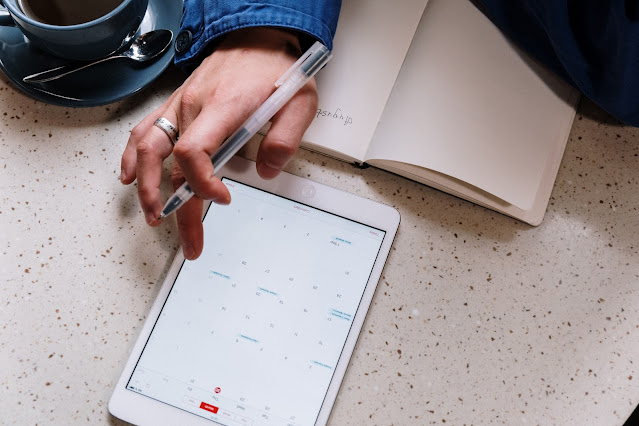Ever felt like your brain's a circus and your life's the show? Enter the magical world of planner journals – where chaos meets creativity, and organized chaos becomes the name of the game. Buckle up for a rollercoaster ride through 10 reasons why this amazing little companion is your ticket to taming the wild ride of life!
In today's fast-paced world, when time seems to slip through our fingers like grains of sand, finding an efficient approach to stay organized and in control has become critical. A planner or journal emerges as a guiding light in the middle of this turmoil, offering a sanctuary of order and purpose.
The process of carefully noting down tasks, events, and goals in an actual way brings forth a sense of empowerment and clarity that resonates deeply with many individuals. We go into the heart of why keeping a planning notebook is more than merely a practical commitment, but also a road to establishing a healthy relationship with time, productivity, and self-awareness.
 |
| Source: Pixabay |
10 Reasons Why I Love Maintaining A Planner
A planner journal helps us get better at organizing things and lets us be creative. It also makes us feel good when we achieve things and gives us a calm place to think. The reasons to like and use a planner journal are really interesting, just like the different lives they help.
Here are ten reasons that motivated me to start using a planner:
1. Stay Organized:
One of the primary reasons I decided to start using a planner was to bring a sense of order and organization to my life. I often found myself juggling multiple tasks, appointments, and important dates, and I needed a reliable way to consolidate all this information in one central location. A planner provided the perfect solution, offering a dedicated space where I could easily jot down everything I needed to remember.
2. Manage My Time:
As life became busier, I realized the importance of managing my time effectively. Using a planner allowed me to allocate time for various activities, whether it was work tasks, personal projects, or leisure activities. By planning out my day and week in advance, I could ensure that I was making the most of my time and avoiding overcommitting myself.
3. Boost Productivity:
With a planner in hand, I experienced a significant boost in my productivity. Having a clear plan for the day laid out in front of me helped me stay focused on my tasks. I found that I could prioritize my to-dos better, avoid unnecessary distractions, and accomplish more in less time.
4. Set and Achieve Goals:
Setting goals had always been important to me, but I often struggled with breaking them down into actionable steps. The planner turned out to be an invaluable tool in this regard. It allowed me to define my goals and then break them into smaller, manageable tasks. This step-by-step approach made my goals feel more attainable, and I began to see consistent progress.
5. Reduce Stress:
Before using a planner, I often relied on my memory to keep track of important dates and tasks. This approach led to unnecessary stress and anxiety, as I constantly worried about forgetting something crucial. Transitioning to a planner relieved me of this burden. Simply writing things down freed up mental space and significantly reduced the stress associated with trying to remember everything.
 |
| Photo by Happiness Maker |
6. Improve Prioritization:
I sometimes found myself overwhelmed by the sheer number of tasks on my plate. The planner helped me prioritize effectively. By categorizing tasks and assigning deadlines, I could distinguish between what needed immediate attention and what could wait. This skillful prioritization allowed me to approach each day with a clear sense of purpose.
7. Track Progress:
The planner served as a dynamic record of my journey. Regularly reviewing past entries helped me track my progress over time. It was enlightening to see how far I'd come and identify patterns in my productivity. This retrospective insight allowed me to make informed adjustments to my approach and refine my strategies for even better results.
8. Enhance Accountability:
Commitments made in my planner felt more concrete. Writing down tasks and appointments created a sense of accountability within me. I felt a stronger commitment to follow through on what I had written, which helped me avoid procrastination and ensured that I honored my commitments.
9. Enjoy Creative Outlet:
Beyond its practical benefits, using a planner also tapped into my creative side. I loved personalizing my planner with colors, stickers, and even little doodles. This creative expression not only made my planner visually appealing but also made the process of planning more enjoyable. It transformed the act of planning into a form of self-expression.
10. Reflection and Gratitude:
Regularly reviewing my planner has let me reflect on my accomplishments, areas for improvement, and patterns in my routine. I feel grateful for all the beautiful things I have achieved, no matter how little they are. I have begun to appreciate and celebrate even the tiniest wins. This self-awareness can lead to personal growth and gratitude.
 |
| Photo by Polina Kovaleva |
Choosing the Perfect Planner: Finding Your Organizational Match
Choosing the right planner involves considering your lifestyle, preferences, and organizational needs. Here are some common types of planners and guidance on how to choose the best one for you:
1. Daily Planner:
- Ideal for Individuals with a busy schedule, detailed tasks, and a preference for daily planning.
- Features: Offers ample space for hourly scheduling, to-do lists, and notes for each day.
- Considerations: If you have a lot of appointments and tasks to manage daily, a daily planner can help you stay on track.
2. Weekly Planner:
- Ideal for Those who prefer a broader overview of their week and want to plan tasks and events every week.
- Features: Typically provides a two-page spread for each week, allowing you to plan ahead and see your entire week at a glance.
- Considerations: If you like to plan your week in chunks and need a balance between detail and a broader perspective, a weekly planner might be suitable.
3. Monthly Planner:
- Ideal for Individuals who want to focus on big-picture planning, important dates, and events.
- Features: Offers a month-at-a-glance view with space to jot down key appointments, events, and goals for the month.
- Considerations: If you prioritize long-term planning and need a way to visualize your month's commitments, a monthly planner is a good choice.
4. Bullet Journal:
- Ideal for Creatives who enjoy a customizable approach to planning and organizing.
- Features: Provides a blank canvas for you to design layouts, trackers, and collections based on your needs.
- Considerations: If you value creativity, and flexibility, and want a planner that adapts to your unique style, a bullet journal might be perfect.
5. Digital Planner/App:
- Ideal for Tech-savvy individuals who prefer electronic organization and want to access their planner on devices.
- Features: Allows you to manage your schedule, tasks, and notes digitally, often with syncing capabilities.
- Considerations: If you're always on your devices and prefer the convenience of electronic tools, a digital planner or app might suit you.
6. Hybrid Planner:
- Ideal for People who want the best of both worlds by combining digital tools with physical planners.
- Features: Integrates physical and digital planning methods to provide flexibility and convenience.
- Considerations: If you're looking for a way to bridge the gap between paper and digital planning, a hybrid approach could be beneficial.
 |
| Photo by cottonbro studio |
Choosing the Right Planner:
1) Consider Your Needs: Assess your daily routine, tasks, and preferences. Do you need space for detailed hourly scheduling, or do you prefer a more flexible overview?
2) Think about Size: Consider whether you want a compact planner that's easy to carry or a larger one with more writing space.
3) Personal Style: Reflect on whether you like a minimalistic design, colorful layouts, or space for artistic expression.
4) Long-Term Goals: Determine if you need space for goal tracking, habit formation, or long-term planning.
5) Budget: Evaluate your budget for a planner. Some options can be more affordable, while others may be pricier due to unique features or customization.
Ultimately, the right planner is the one that aligns with your organizational style, helps you manage your tasks effectively, and brings you joy in the planning process. Take the time to explore different options and find the planner that suits you best!
Concluding Words
In summary, embracing a planner has been a transformative decision. It's brought order to my chaos, helped me better manage my time, and elevated my productivity. Goal setting and progress tracking empowered me to make consistent strides toward my aspirations.
By relieving stress, improving prioritization, and enhancing accountability, it's facilitated a more intentional and fulfilling daily life. Moreover, the creative dimension it adds has made planning a delight rather than a chore. Altogether, using a planner has shaped me into a more organized, efficient, and mindful individual.
Facebook | Instagram | Twitter








40 Comments
I never journaled in the true sense of the word but I did start writing down my feelings during my school days because I felt I couldn't share them with anyone. I also keep a small pocketbook to jot down important tasks to do. After reading your post I desire to start keeping a weekly journal once again.
ReplyDelete
DeleteI'm glad to hear that my post has inspired you to consider restarting your journaling practice! Remember, there's no right or wrong way to journal – it's a personal journey that can evolve over time. Enjoy the process and the insights it brings to your life!
Spoke my mind. Especially being a parent and having a full-time job and also with blogging and recipe creations, mind is full of circus not knowing what to do first and what not. Having a planner is so useful, and now with technology it is even easier to plan ahead of things. Call me old school I still like to use diary to write down things.
ReplyDeleteBalancing parenthood, a full-time job, blogging, and recipe creations can indeed turn one's mind into a bustling circus of tasks and ideas. And a well-structured planner can be a lifesaver in such situations. Keep up the great work with your various endeavors.
DeleteI love to journal. I am very lazy person and when I write down my to do list, work will complete otherwise it tend to postpone. I love your details regarding planners. I have no ideas about so much details. Thank you for sharing.
ReplyDeleteI'm a journal enthusiast myself, and jotting down my to-do list is my secret weapon against procrastination. Thank you for stopping by.
DeleteWhile I was going through your post Felicia, I couldn't help thinking about my husband cuz he does journaling and writes down everything. Even if it is buying a gadget, he makes notes, compares prices and features benefits etc... he makes a table. I like the way he puts everything on paper/computer but I personally don't do that ever. However after reading your post, i realized it makes so much sense .
ReplyDeleteThank you so much for sharing your thoughts. Here's to discovering new ways to enhance our daily lives, one mindful step at a time!
DeletePlanners are life savers. I tend to forget a whole lot of things and a planner is a good way to remind yourself of the prioritised tasks. I prefer a daily planner, as I can keep working step-by-step and a paper one. I try and minimise screen time.
ReplyDeleteI'm right there with you on the preference for a daily planner. There's something satisfying about breaking down our day into actionable steps.
DeleteA planner is always ideal for keeping things and ideas in place. I use a digital one it helps with alot of things. Relying on ur mind can sometimes deceive you.
ReplyDeleteIndeed. A digital planner has been a game-changer for many.
DeleteKeeping a journal isn’t just for older and wiser people anymore. It’s stuff you must do right away. Yes, that’s correct. You can use a journal for more than just keeping track of your recollections or expressing yourself. It benefits your wellness. Journaling is healthy for you on all levels, including your body, mind, and emotions. Write without self-censorship. It’s for you. Never forget that Shakespeare is not required. Thank you Felicia for this brilliant content which will enlighten many to take up Journaling.
ReplyDeleteAbsolutely agree! Journaling isn't limited by age and offers holistic wellness benefits for body, mind, and emotions—no self-censorship needed.
DeleteThis is one area I lag. Somehow, despite several attempts I've never been able to be organized. And now I've gotten used to my crazy, chaotic world.
ReplyDeleteEmbracing the chaos in your world is a valid approach if it's working for you and not causing any significant issues.
DeleteYour exploration of planner journals is truly captivating! Your insights into their benefits resonate deeply, emphasizing how they bring order, creativity, and purpose to our lives. Your detailed guidance on choosing the right planner showcases your expertise. I'd love to hear more about your planning journey and any personalization tips you have!
ReplyDeleteThank you so much for your kind words! I'm thrilled to know you found the post inspiring. I'll definitely share more about my planning journey and personalization tips in future posts!
DeleteAbsolutely love the reasons you've laid out for embracing a planner! The way it brings order, boosts productivity, and helps set and achieve goals is just incredible. Plus, the reduced stress and enhanced prioritization are like a breath of fresh air.
ReplyDeleteI totally relate to your journey. I get super excited about using a planner, go all in for a month, and then it's back to my old ways. But each time I pick it up, it's like a restart button, helping me regain focus.
Your tips on choosing the right planner are golden. It's like finding a partner that vibes with your style. Thanks for sharing and reminding me to start my planner where I left off.
-Anjali
Thank you, Anjali! Your enthusiasm for planners is truly inspiring, and your experience resonates with many of us seeking that "restart button" for focus and organization.
DeletePlanners are invaluable. A planner is the best tool for organising tasks and ideas. Your mind can occasionally trick you if you rely on it.Since I can continue working step-by-step, I prefer a daily planner that is on paper. Your health will benefit. The benefits of journaling extend to your time, effort, and monthly goals.
ReplyDeleteAnd oh boy, you're absolutely right about those mind tricks. It's as if our brains have a secret agenda to turn our to-do list into a "maybe-do-later" list.
DeleteSince I have ADHD managing everything has been a torture. A planner is what helps me to push through. As you said it helps in managing time and be organised
ReplyDeleteI completely understand where you're coming from! ADHD can indeed make managing tasks and staying organized quite challenging. It's wonderful to hear that a planner has become a valuable tool in your arsenal.
DeleteThis is such a beautiful post writing down our day-to-day flow of work does give numerous benefits you almost covered everything. Improving our productivity level and doing what we enjoy for both planning with a planner is essential as your post suggests .
ReplyDeleteThank you so much for your kind words! I'm thrilled to hear that you found the post valuable and that it resonated with your experience.
DeleteSuch a great and essential post that details the usefulness of a planner and planning. Kudos to the beautiful flow and structure of the post.
ReplyDeleteThank you so much for your kind words!
DeleteI have never used a planner journal. Back in our days, we used to just jot down what needed to be done. We never had mobile phones or apps back then.
ReplyDeleteIn a digital age, planners offer a convenient evolution of the classic jotting approach.
Deletetrying to maintain one is sort of a dream. I even tried once but just for a few days. Thanks for the detailed info. yes it does boosts the productive
ReplyDeleteI understand, consistency can be challenging, but I'm glad the information was helpful in boosting productivity.
DeleteI do plan out my whole month in advance but I don't use a planner journal. I prefer online apps because of the nature of my work. There would just be so much moving around, crossing out, and stuff. And the fact that it syncs well.
ReplyDeleteI absolutely love planning and for years I have been doing Bullet journaling cz of the immense flexibility it gives me and it helps me so much to be productive and serves my overall mental wellbeing
ReplyDeleteMy journal is my path to vent out. Can't live without it .
ReplyDeleteI'm not much of a planner; I tend to go with the flow, primarily because I've always been someone who doesn't procrastinate. However, recently, in light of my mental health, I've started journaling, and it's been remarkably beneficial for me. So, there you have it.
ReplyDeleteWhen I am writing I am in a happy place. I have a journal to script conversations between my son and I or special events.
ReplyDeleteI have tried maintaining planners in the past but I have come to realize planning overwhelms me and I'm the person who thrives on chaos
ReplyDeleteI never realised I was a planner gal until I saw some of my planners from 10 years ago. Buying a planner and joining the hype during those days was simply what I remember but the habit of being organised my plans on it had stuck on me until now. - MommyWithAGoal
ReplyDeleteA very useful post. My phone is my digital planner!
ReplyDeleteNoor
Share Your Thoughts. Do not leave links in the comments!